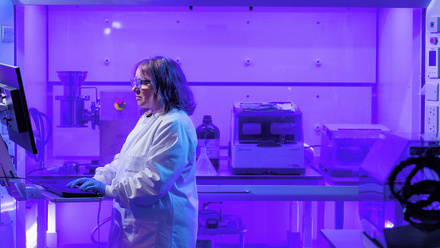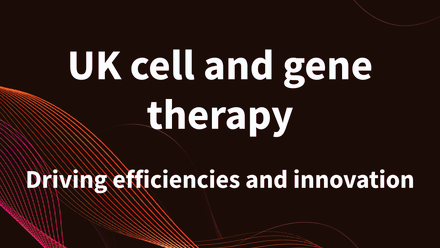Bioprocessing has never had as high a profile as it does now
The public interest in the development of a successful COVID-19 vaccine has resulted in unprecedented attention for the UK bioprocessing and manufacturing community in 2020. You would be hard pressed to find a day in recent memory where a vaccine and how it will be made has not appeared in the news. The work that companies have done to support the manufacturing capacity required to scale a successful vaccine here in the UK has been extraordinary. In this blog, I explore the benefits and opportunities this presents ahead of the bioProcessUK conference in December.
At Fujifilm we are a contract manufacturer, we don’t discover vaccines, but we have been engaged on how we can support or make vaccine manufacturing. What does the supply chain look like and how can we predict a supply chain, so we can make sure we pre-order raw materials and consumables and approach the development of the vaccine with the right resources?
Through the BIA’s COVID-19 Vaccine Manufacturing Taskforce, we were able to co-ordinate with other companies and wider supply chain in the public interest. Our Chairman Steve Bagshaw led these conversations which centred on “what can we do to supply the UK with what they need to get a vaccine?”
What this meant is that when the list of items came from Oxford or Imperial, or anywhere else, we worked out what we needed and were able to communicate it with all suppliers. This gave us one route into those organisations to say, this is what the vaccines are asking for – each supplier can then separately answer what they can do to help? Another benefit was everyone getting the information at the same time, so all of us were able to prioritise separately our individual supply chains.
Our industry has been asked to turn normal business on its head and to do that successfully speed is a priority, but so is collaboration for vaccine supply, and that coordination across the whole supply chain. Through the BIA, you have a network of organisations already talking to each other and that means we were not reacting to a situation like this cold, the BIA’s Manufacturing Capacity Audit was based off work previously done by the Association around Ebola. Through Ian McCubbin OBE, Chair of the BIA’s Covid-19 Vaccine Manufacturing Taskforce, and BIA’s CEO Steve Bates OBE, the information we were providing was going directly into the Government’s Vaccine Taskforce to help them with vaccine planning efforts - it was a real asset for the UK bioindustry, having a trade association with those sector wide and government links .
Where we have seen another gain is with the MHRA. The MHRA’s position has been incredibly clear that they won’t be cutting any corners, but they have created flexibility for industry to explain how we’re manufacturing vaccines faster and how we plan to overlap.
The bioProcessUK conference will explore these themes and is an opportunity for delegates to discuss new thinking and innovation taking place in bioprocessing. I am particularly keen to hear how we build the case for further investment in bioprocessing, so we can continue to be a source of highly skilled and well-paid jobs, plus economic growth as countries emerge out of COVID-19.
I look forward to catching up with you at the conference.
Kit Erlebach is Chair of the BIA Manufacturing Advisory Committee and Strategic and Transformational Venture Manager at Fujifilm Diosynth Biotechnologies





